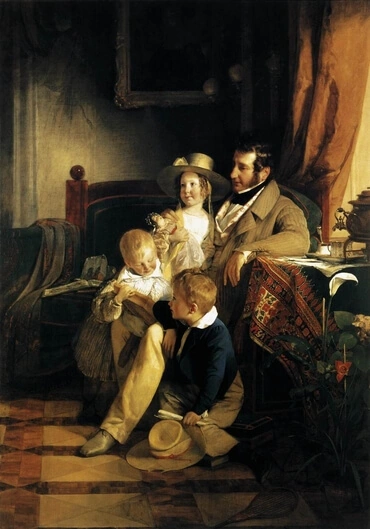1
David dit: Reste-t-il encore quelqu'un de la maison de Saül, pour que je lui fasse du bien à cause de Jonathan?
2
Il y avait un serviteur de la maison de Saül, nommé Tsiba, que l'on fit venir auprès de David. Le roi lui dit: Es-tu Tsiba? Et il répondit: Ton serviteur!
3
Le roi dit: N'y a-t-il plus personne de la maison de Saül, pour que j'use envers lui de la bonté de Dieu? Et Tsiba répondit au roi: Il y a encore un fils de Jonathan, perclus des pieds.
4
Le roi lui dit: Où est-il? Et Tsiba répondit au roi: Il est dans la maison de Makir, fils d'Ammiel, à Lodebar.
5
Le roi David l'envoya chercher dans la maison de Makir, fils d'Ammiel, à Lodebar.
6
Et Mephiboscheth, fils de Jonathan, fils de Saül, vint auprès de David, tomba sur sa face et se prosterna. David dit: Mephiboscheth! Et il répondit: Voici ton serviteur.
7
David lui dit: Ne crains point, car je veux te faire du bien à cause de Jonathan, ton père. Je te rendrai toutes les terres de Saül, ton père, et tu mangeras toujours à ma table.
8
Il se prosterna, et dit: Qu'est ton serviteur, pour que tu regardes un chien mort, tel que moi?
9
Le roi appela Tsiba, serviteur de Saül, et lui dit: Je donne au fils de ton maître tout ce qui appartenait à Saül et à toute sa maison.
10
Tu cultiveras pour lui les terres, toi, tes fils, et tes serviteurs, et tu feras les récoltes, afin que le fils de ton maître ait du pain à manger; et Mephiboscheth, fils de ton maître, mangera toujours à ma table. Or Tsiba avait quinze fils et vingt serviteurs.
11
Il dit au roi: Ton serviteur fera tout ce que le roi mon seigneur ordonne à son serviteur. Et Mephiboscheth mangea à la table de David, comme l'un des fils du roi.
12
Mephiboscheth avait un jeune fils, nommé Mica, et tous ceux qui demeuraient dans la maison de Tsiba étaient serviteurs de Mephiboscheth.
13
Mephiboscheth habitait à Jérusalem, car il mangeait toujours à la table du roi. Il était boiteux des deux pieds.







